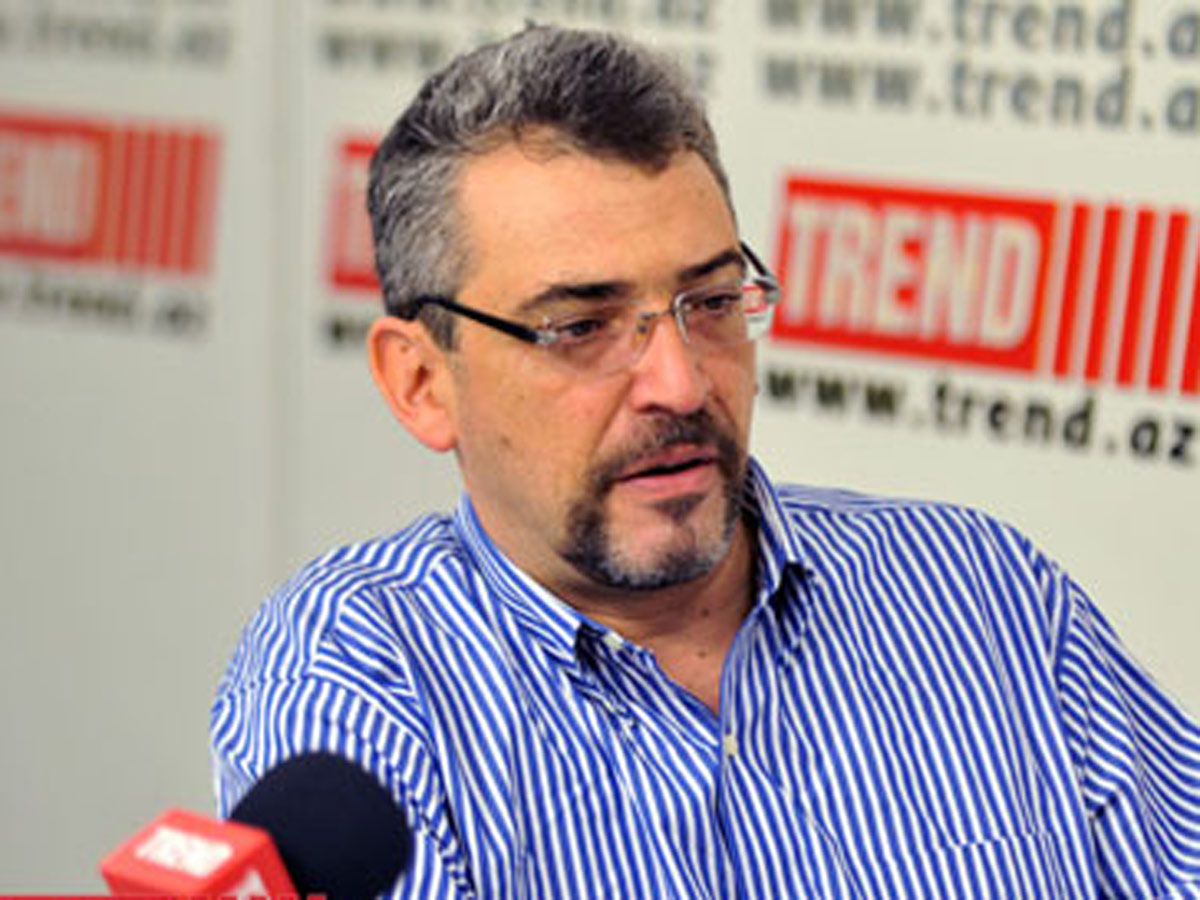Baku, Azerbaijan, April 13
By Elmira Tariverdiyeva - Trend:
The US and EU have been completely inefficient in resolving the Nagorno-Karabakh conflict, says Ariel Cohen, founder of International Market Analysis Ltd., director of the Center for Energy, Natural Resources and Geopolitics, senior fellow at the Institute for Analysis of Global Security.
"The fighting in Nagorno-Karabakh is like a chronic affliction that simmers down but never really stops," Cohen wrote in his article published on Huffingtonpost.com. "However, the eruption that began on April 2nd has flared up to levels unseen since the 1990s."
The expert wrote that a fragile cease-fire is holding, but this unstable equilibrium can blow up with consequences for the South Caucasus and beyond.
"Turkish-Russian tensions are at their highest since the end of the Cold War," Cohen wrote.
"With Washington AWOL and the U.S. busy with its most polarizing electoral campaign, Russia is likely to take this opportunity to consolidate its sphere of influence and boost its power in its southern flank."
The expert wrote that unfortunately, the U.S. and the West have neglected the regional dimensions of the conflict, despite the fact that it has implications for clashes of interest involving Russia, Turkey, Iran, the EU and the U.S.
"The Russian military presence has been building up in Armenia for decades," the expert wrote.
The expert wrote that the recent clashes in Nagorno-Karabakh will give Moscow excuses to deploy Russian peace-keepers in the zone of the conflict.
Cohen wrote that the military build-up in the region will also allow Russia to disrupt the Southern Energy Corridor, which harbors two main export pipelines for oil and gas.
"It is unfortunate that the EU and the U.S. have persistently refused to have a look at the maps," the expert wrote.
The expert wrote that for example, there were only six Western OSCE observers along the line of contact of the Azerbaijani and Armenian troops, which is risible.
"Both the US and the EU/France, as co-chairs of the Minsk Group have been completely inefficient in resolving the conflict and preventing new clashes," Cohen wrote.
"Even after the hostilities erupted earlier this month, evidence of Obama's leadership remained amiss," Cohen wrote. "This has left Russia to play the diplomat. The latest cease-fire was negotiated by Russia directly, bypassing the Minsk group."
"In fact, the US and the EU are allowing Russia to rebuild its imperial sphere of influence," the expert wrote. "In the long term, this is definitely not in the interests of United States - or of its European allies and Turkey."
"The Great Game is back," Cohen wrote. "In fact, it never really went away."
On the night of April 2, 2016, all the frontier positions of Azerbaijan were subjected to heavy fire from the Armenian side, which used large-caliber weapons, mortars and grenade launchers. The armed clashes resulted in deaths and injuries among the Azerbaijani population. Azerbaijan responded with a counter-attack, which led to liberation of several strategic heights and settlements.
Military operations were stopped on the line of contact between Azerbaijani and Armenian armies on Apr. 5 at 12:00 (UTC/GMT + 4 hours) with the consent of the sides, Azerbaijan's Defense Ministry earlier said. Ignoring the agreement, the Armenian side again started violating the ceasefire.
The conflict between the two South Caucasus countries began in 1988 when Armenia made territorial claims against Azerbaijan. As a result of the ensuing war, in 1992 Armenian armed forces occupied 20 percent of Azerbaijan, including the Nagorno-Karabakh region and seven surrounding districts. The 1994 ceasefire agreement was followed by peace negotiations.
Armenia has not yet implemented four UN Security Council resolutions on withdrawal of its armed forces from the Nagorno-Karabakh and the surrounding districts.






